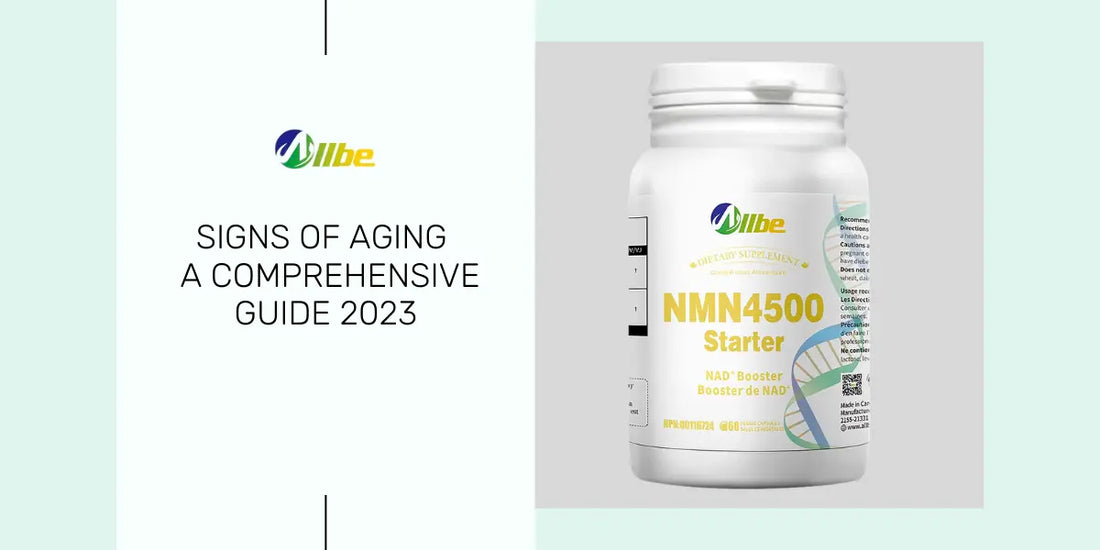
Signs Of Aging | A Comprehensive Guide 2023
Aging is a natural process that affects every person differently. While some people may age more gracefully than others, certain physical and mental changes are common to all.
As we age, our bodies and minds undergo a series of changes that can impact our overall health and well-being. It's important to be aware of the signs of aging so that we can take steps to manage them and maintain our quality of life.
In this article, I will explore the physical and mental signs of aging, including common changes that occur at different ages.
Physical Signs of Aging
As we age, our bodies undergo several changes that are perfectly normal. Here are some of the most common physical signs of aging:

Wrinkles and Fine Lines
Our skin loses its elasticity with age, resulting in wrinkles and fine lines. They are most commonly found on the face, neck, and hands.
Thinning Hair
Hair thinning and loss are common in both men and women as they age. This is due to hormonal changes and genetics.
Decreased Vision and Hearing
Eyesight and hearing decline with age. Regular eye and ear checkups with an optometrist and audiologist are essential to detect any underlying problems.
Decreased Mobility
Our muscles and bones weaken as we age, resulting in decreased mobility. Stretching and exercise can help maintain muscle mass and flexibility.
Fatigue
Fatigue is one of the most common symptoms of aging. Numerous factors can contribute to it, including sleep disturbances, hormonal changes, and underlying health issues.
Signs of Aging That Might Indicate Underlying Health Issues
While some signs of aging are normal, others might indicate underlying health issues. Here are some signs to look out for:
Sudden Weight Loss or Gain
Sudden weight loss or gain can indicate underlying health issues such as thyroid problems, diabetes, or cancer.
Skin Changes
Changes in the skin, such as dark spots, moles, or sores that don't heal, can be a sign of skin cancer.

Chest Pain
Chest pain can be a sign of a variety of health conditions, such as heart disease, lung problems, or gastrointestinal issues.
Loss of Appetite
Loss of appetite can be a sign of underlying health issues such as depression, thyroid problems, or cancer.
Incontinence
Incontinence is the loss of bladder control, and it can be a sign of underlying health issues such as urinary tract infections, prostate problems, or neurological disorders.
What are the Mental Signs of Aging?
While physical signs of aging are often the most visible, it's important also to consider the mental signs of aging. Our brains undergo natural changes as we age, affecting our memory, cognitive abilities, and overall mental health. Here are some common mental signs of aging to be aware of:
- Memory Loss
- Slower Processing Speed
- Reduced Attention Span
- Mood Changes
- Decreased Creativity
When Do Aging Symptoms Start to Show?
Aging symptoms can start to appear as early as age 30. Physical signs, such as wrinkles and gray hair, may start to appear in your 30s and 40s. Mental signs, such as memory loss and difficulty concentrating, may become more noticeable in your 50s and 60s.
What are the Normal Signs of Aging at Different Ages?
While everyone ages differently, there are some general patterns for the signs of aging at different ages.
Signs of Aging in the 30s and 40s
In your 30s and 40s, you may notice physical changes such as:
- Fine lines and wrinkles
- Gray hair
- Age spots
- Decrease in skin elasticity
- Thinning hair
Signs of Aging in the 50s and 60s
In your 50s and 60s, you may experience physical and mental changes such as:
- Memory loss and cognitive decline
- Decrease in muscle mass and strength
- Joint stiffness and pain
- Vision changes
- Hearing loss
Signs of Aging in the 70s and 80s
In your 70s and 80s, you may experience more severe physical and mental changes such as:
- Problems related to mobility
- Cognitive decline
- Chronic health conditions
- Dental problems
- Skin thinning
How Can You Manage the Signs of Aging?
While some changes are inevitable, there are things you can do to manage the signs of aging. Regular exercise, a healthy diet, and getting enough sleep are essential for maintaining physical and mental health.
Using sunscreen and moisturizer can help protect your skin from sun damage and reduce the appearance of wrinkles. Cognitive exercises, such as puzzles or memory games, can help maintain mental sharpness.
Another effective way is to use NMN supplements like NMN 4500 to reduce the signs of aging. Our natural, risk-free dietary formula is specifically designed to reverse aging symptoms. Get these amazing pills now!
FAQ Section
Q1: Can you reverse the signs of aging?
A1: While you cannot reverse the signs of aging entirely, there are ways to slow down or manage the process. Regular exercise, a healthy diet, and proper skin care can help maintain physical health and reduce the appearance of wrinkles and age spots.
Q2: Are memory problems a normal part of aging?
A2: Some memory loss and difficulty concentrating can be a normal part of aging. However, if these symptoms are severe or impact your daily life, you should speak to a healthcare professional.
Q3: Can mental exercise help slow down the aging process?
A3: Mental exercises, such as puzzles or memory games, can help maintain mental sharpness and may slow down the aging process.
